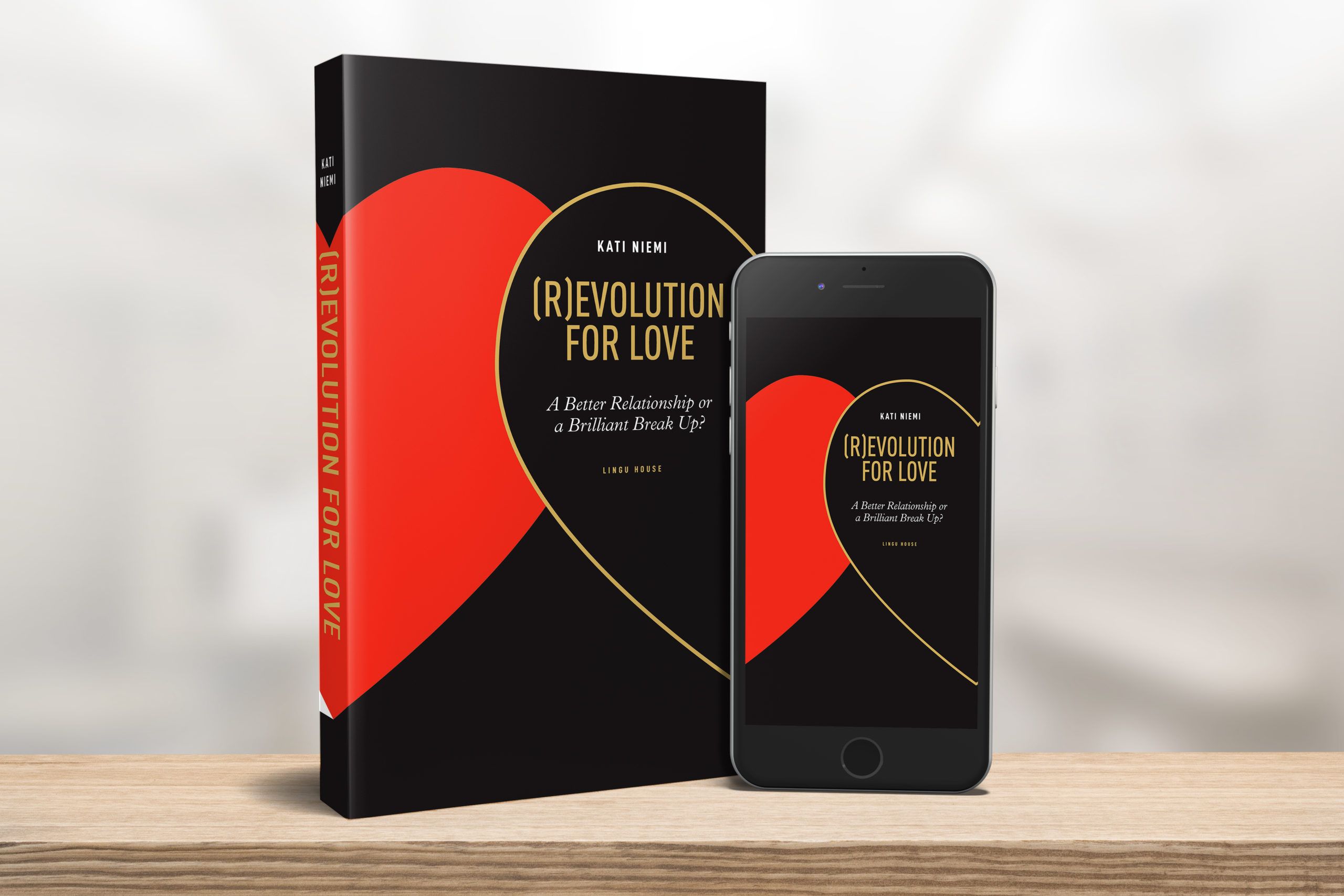To deny yourself your feelings is unhealthy. If you don’t feel anything it means you are dead. “I’m fine. I’m fine. It’s ok, I’ll survive! Why would you even think I wouldn’t?” If I hear a friend say anything to this effect, I worry. What is the narrative that the person is repeating to themselves if ‘being fine’ is a must and failure is not even an ‘option’? And is compassion offered by others a threat or an opportunity? When is positive thinking necessary and when does it turn toxic? What is too much positive thinking? And where should we direct the power of our mind and focus our willpower on?
Are positive thinking and willpower the key to happiness?
We easily confuse positive thinking with willpower: “All you need to do is think positively and want harder”. However, we only ever resort to willpower when deep down we don’t want what we think we should or have grown accustomed to want.
Utilised with discretion, willpower does indeed give us power. Sometimes we need it to get through the day and do what has to be done. As a permanent tool, however, it is only good for digging you a hole. In this respect, positive thinking operates much like willpower: when used as your go-to resource, it defies its purpose.
Don’t get me wrong. I’m a firm advocate of positive thinking. At times, however, I’m not sure that I’m getting my message across the way I would like to. Yes, I come across as happy and energetic and I always focus on solutions.
People are mistaken to think it’s all just positive thinking
It may be assumed that I don’t have problems or feel troubled or don’t find new things difficult. Many of my old colleagues remember me first as the one who laughs a lot and “always” smiles. How I could get excited about “everything and anything” and yet manage to stay focused and be very determined and demanding if need be.
I assure you, you can’t achieve goals by sprinkling a little positivity on difficult issues like fairy dust. What a positive attitude does it gives us the capacity to deal with painful things. It gives us confidence that we won’t break down under the pain.
For as long as I can remember, people have asked me how I manage to stay so positive and enthusiastic about life. I’m known as the Duracell Bunny. “Whatever she’s on I’d like some, too!” So where do I find my drive to make changes and learn all these new things while I work and live my life? How do I see solutions in the middle of the darkest despair, grief and uncertainty? So I thought I’d write a few words about this theme today.
The dark side of positive thinking
Let me start my saying that it is such a giant leap for mankind that we have come to realise the practical effects of positive thinking in our wellbeing. After all, that’s what I keep “preaching” in this blog, sometimes specifically, sometimes between the lines.

Online Coaching
Happy to help you! Welcome to book your online coaching session with the certified Coach, NLP Trainer, and Clinical Hypnotherapist Kati Niemi! Please select your
However, I do find that “positive thinking” can also become highly toxic. That’s why I want to talk about this issue in more depth. In this post, I am deliberatively taking a controversial approach on positive thinking. I believe that this approach is more effective. I trust it will lead to more genuine positivity when you are next facing difficulties in life.
Let’s start with the basics:
Positive thinking isn’t a magic trick that just makes all our troubles go away. There is nothing positive about positive thinking if it is all talk, inspirational quotes and hashtags. It’s not supposed to be like a gun against your head, forcing you to push through one challenge after another.
There is nothing wrong in saying “I can’t do it anymore” and to bawl your eyes out if that’s how you feel. There is no need to do more than you can, fuelled by soundbites of fake positivity. In fact, listening to the one-liners and inspirational quotes of positive thinking can be harmful to the wellbeing of a balanced and flexible mind.
Instead, turning on the waterworks can be a very cleansing experience that allows you to see that instead of banging your head against the wall, you can simply open the door and walk through it. I have described in another one of my (R)evolution for Love blog posts how a 2.5-hour-session of focused grieving can bring your more joy than a 2.5-hour exercise in positive thinking: Conscious grieving can dramatically improves wellbeing.
It makes sense to change your direction at times, and you are allowed to change your mind about which dreams you want to pursue and how. Don’t be held back by your dreams.
When does positive thinking become toxic?
While positive thinking can be good for us and useful, it is important to bear in mind that we are only human after all. Having a life filled with love and success is all very well, but it doesn’t mean that life that is marred with disappointments and falls short from our ideals is still life. The purpose of life is, ultimately, to live.

How to improve your wellbeing through self-development?
Science has revealed: some adults are not mentally sufficiently developed. How to improve your wellbeing through self-development?
Many people look for a meaning under intense pressure and rush to the point that the actual meaning of life – living – gets set aside. We are all hurt and wounded by life, and shallow, positive thinking is nothing but a quick band-aid and does not heal the actual pain. Sometimes it is more important to nurture your grief rather than strive to think positive. Not because ruminating is so much fun but because it is the only way to achieve genuinely positive outlook on life that adds to our happiness.
Negativity is normal
Negative and critical thoughts, anxiety, depression, and grief are completely normal and expected parts of human life. Sometimes these unpleasant feelings and times in life are highly necessary. It is in our DNA to be more motivated by the carrot than the stick. Many couples break up only once things truly come to a head and the pain has become unbearable.
Another option is to make a decision about the relationship earlier, when either of the partners realise that they want something else than what they are able to build with the current partner. Therefore, finding yourself completely floored by life, sobbing and cursing, is not necessarily a disaster. But it is time you listen to yourself cursing and crying and understand that it is a sign that change is imperative and don’t just sweep your sadness and pain under the carpet of positivity.
If you deny yourself the feelings of anger, where will you find the drive you need to make big life changes when necessary? Leverage your pain and inner critic, learn from them, and use them to empower yourself to make the change you need.
How many moments of clarity arising from anger and pain are you going to ignore?
Read more about grieving as an empowering practice: Conscious grieving can dramatically improve wellbeing.
Motivational language does not take you closer to your goals
My approach to positive thinking that I use with my clients can serve as an example.
Rule #1: Anyone seeking a positive outlook on life needs to understand that positive wellbeing also involves negative emotions. There are no highs without the lows in between. Our emotional skills are what help us navigate through the ebbs and flows of emotions. One important skill is to dive into deep waters without drowning. The deeper we learn to dive without catastrophising, the more we will also learn to use the skills we can gain through practice, such as improved oxygen uptake thanks to correct breathing. With those skills we learn to reach for higher and higher goals without vertigo. We all have plenty of resources as well as the tools to strengthen them.

Why does our conscious mind question the power of the unconscious mind?
Is the power of the unconscious mind fake news and is trying to harness it to achieve our full potential a waste of time? What do we mean by the unconscious mind?
You can start strengthening your resources right now with something really simple, which I introduce in this blog post. Just remember to acknowledge that skill in the moment, and you will have started the work of empowering yourself from within. Without a single positive, motivational speech required! So, here’s the trick: Try, Practice, Use.
How do you build self-suggestion speech that is genuinely positive?
Rule #2: While setting a positively worded goal and encouragement are important, excessive positivity turns against itself. Telling a depressed person how wonderful everything is harmful. Then again, a person with an established positive approach is able to gain extra strength from skilfully formulated self-suggestion.
According to the basic principles of suggestion therapy, positive encouragement speech, or goal-based suggestion, should be built gradually based on the person’s current situation and field of experience. If you try to jump too many steps at once, you are more likely to stumble than you would taking one step at a time.
Don’t work against yourself
The unconscious mind and the subconscious do not accept suggestion that is contrary one’s basic beliefs. This barrier is impenetrable even in the hypnotic state when alpha and theta brain waves take over. That’s why you should construct each suggestion subtly and strategically, step by step, gradually inching towards improvement. The effect of the “I want it all and I want it now” attitude is the very opposite of the one intended. Sometimes the most valuable tool in self-improvement is to learn to tolerate negative emotions, as it teaches us patience and resilience. Patience and resilience are skills that will help you reach even the wildest of your dreams.
Naturally, every life coach out there is different and everyone has their preferred toolkit. My approach involves first building the foundations with my client, after which we gradually move on to deeper waters and more challenging exercises.
Defining your first positive goal
Your first goal should probably not be to resolve your most complex and difficult problem. It is quite possible that this specific problem is what has sustained you all your life until now. It is better to reinforce your resources before you throw away the crutch. For example, if you are trying to lose weight, denying yourself any chocolate may not work if chocolate is the one thing that you resort to in emergency and not really the main cause of your weight gain.

FREE EBOOK ‘I love you but…’ – To Break Up or Not to Break Up?
Refocus your energy now to improve your love life! This FREE ebook ‘I love you but…’ will help you move towards a better relationship or
Therefore, it pays to be careful and thoughtful when setting a goal for yourself or encouraging other to reach their own. Be mindful of what type of positive thinking and motivational speech is truly helpful. There is no point trying to solve all your problems here and now. It is important to perceive goals and solutions as part of your overall wellbeing and to pace yourself accordingly. And if only positive thinking is acceptable and failure is not even an option, how on earth were you going to deal with setbacks and failures that are an integral part of life?
For more on this topic, you may be interested in this (R)evolution for Love blog post: Failure is not an option, right?
Positive thinking is genetic
Several studies have shown that human nature is not only a collection of learned habits but also hereditary, genetic traits. While we can live decades thinking or at least hoping that we are nothing like our parents, by the time we reach middle age, we usually see in what respects we are similar to both our parents and our children. Although many behaviour are learned through own social interaction from childhood onwards, some of our traits and tendencies are genetically hardwired in us.
So is it any wonder that for some people certain behaviours are easier than for others? There is no point blaming yourself that despite your best efforts you can’t be as positive as someone else. You don’t have to choose the same course of action as someone else in reaching for your goals.
There are many routes to each destination, and it is perfectly acceptable to stop along the way.
At what point will you allow yourself to give up and take a rest before trying again, maybe try a new way?
You can read more about the importance of stopping in this blog post: Why is breathing important to our health?
How to achieve a positive attitude towards life if you grew up on negative thinking?
Personally, think I was born with positive thinking. It is in my genes. I grew up surrounded by positive thinking, for which I’m grateful to my family. It is probably because of my genetic makeup and upbringing that facing new challenges with enthusiasm is easier for me than for someone else. And because I have the tendency to take challenges in my stride in any area of life, experience has taught me that I can survive tough situations. Cold water only feels cold to begin with, and even after diving into the deep end, you know you can back to the surface with a couple of kicks. Exercises for a flexible brain gives you additional resources, after which you can face new challenges with curiosity.

FREE AUDIOBOOK: Audible, Google Play and other stores’ free trial
Audiobook lovers benefit from FREE trial periods of book stores. Enjoy (R)evolution for Love on Amazon Audible, Google Play & other stores
But it is important to realise that I don’t operate on positive thinking alone. Positive thinking is nothing if it isn’t combined with concrete action, occasional negative thoughts, uncertainties, and my worst fears. Cognitive behavioural therapy (CBT) techniques are helpful tools in situations where mere positive thinking and motivational speech are not enough to set the wheels in motion.
Stop and breathe
The most important thing to remember before you act: stop and breathe. You don’t have to make decisions the very moment you feel you need a decision. That feeling of panic is probably just that – panic. It is not the firm foundation for any action. In emotional work, we often refer to reception of emotions. The reception of emotions means identifying, naming, and welcoming an emotion. However, it doesn’t mean the obligation to act on every emotional impulse and the thoughts that come with it. The feeling of panic, too, will pass and with it the thoughts triggering immediate action. Make your decisions from a place of calm and serenity.
Even if you are surrounded by people prone to negativity, criticism or depression (also partly genetically programmed) that doesn’t mean that you can’t learn a range of methods to improve your wellbeing through more positive thinking. Even if your parents and siblings or your friends and partners have failed to support you with a truly positive encouragement, now as an adult you are free to choose someone who wants to help you look at the world from a broader perspective.
Fear as a barrier to positive thinking

If after reading this post you are still sceptical about the negative side of super-positive thinking or the 2.5-hour grieving session I recommended my blog post on the benefits of conscious grieving, try setting you prejudices aside for a moment and keep an open mind.
Change can be easy, especially if you keep it small and sweet. A bigger change takes a bigger effort. Embracing a revolutionary, new way of thinking may seem painfully slow and hard work at times. However, the slowness is a necessary and integral part of the process. If everything in life was easy and grow into better versions of ourselves at a drop of a hat, could we even call it self-improvement? It may be a cliché, but the truth is that development occurs when we step outside our comfort zone.
Learning new things can be a bitch, but most of the time that’s precisely why learning is so appetising.
What of the many flavours would you like sample as you move toward a truly positive new life?
If you limit yourself to only the sweet and easily palatable, then you don’t know what you might be missing venturing into more bitter and spicy experiences.
Or if you find yourself in the hole you dug yourself into with superficial positivity and sheer willpower, will you be able to use that willpower to climb out of the hole and look outside to see all those opportunities waiting for you?
Drop me a line if you would like to share your journey through the dark side of positive thinking when tackling your personal challenges. Only you can take the bull by the horns in your own life. But if you need someone to coach you in this rodeo of life, I’m here for you. Don’t mount that wild bull with sheer willpower and positive thinking. You need to keep calm, think what you are doing and be able to tame that bull. Be in touch if you would like some gentle but challenging face-to-face or online coaching towards your goals!
Don’t be afraid of your path even when it might be a rocky road.
Happy to hear from you!
With Love
Your Coach Kati
Clinical Hypnotherapist, NLP Trainer, MSc., Author, Blogger
[email protected]

“FIVE STARS!” Book reviews: (R)evolution for Love (Amazon Books)
“Five Stars!” Editorial reviews and reader reviews of (R)evolution for Love – A Better Relationship or a Brilliant Break Up? Amazon books

FEEDBACK TO LOVE! Reader reviews (Book+Blog)
RELATIONSHIP GUIDE: BOOK REVIEWS – We are blown over by the feedback the (R)evolution for Love relationship blog and guide have received. WOW!

FREE AUDIOBOOK: Audible, Google Play and other stores’ free trial
Audiobook lovers benefit from FREE trial periods of book stores. Enjoy (R)evolution for Love on Amazon Audible, Google Play & other stores

FREE EBOOK ‘I love you but…’ – To Break Up or Not to Break Up?
Refocus your energy now to improve your love life! This FREE ebook ‘I love you but…’ will help you move towards a better relationship or

How to improve your wellbeing through self-development?
Science has revealed: some adults are not mentally sufficiently developed. How to improve your wellbeing through self-development?

Why does our conscious mind question the power of the unconscious mind?
Is the power of the unconscious mind fake news and is trying to harness it to achieve our full potential a waste of time? What do we mean by the unconscious mind?

INFIDELITY and the collected excuses: The good reasons for cheating
CHEATING: What is a good reason to cheat? What do the cheated partner, “the other woman/man” or the cheater choose to believe in?

What is an open relationship? Does it lead to breaking up?
What is an open relationship? Who are non-monogamous open relationships for? Is your partner suggesting consensual non-monogamy?

Narcissism in a Relationship: “How to Know if My Partner Is a Narcissist?”
What are the signs and causes of narcissism? Can you make a relationship with a narcissist work? Can you heal a narcissistic partner?

Aromatherapy for Libido & Romance – The Best Essential Oils for Love
Sense of smell influences our sexual desire and performance. Aromatherapy tips and the best essential oils for romance, libido, sex and love.

When positive thinking becomes toxic
What is too positive thinking like? Where should we focus the power of our mind and our willpower?

TO BREAK UP OR NOT TO BREAK UP? Should I stay or should I go?
How do you know if you should leave or not. How to make the decision to break up or to improve your relationship? To break up or not?



























